Understanding Used Motor Oil Recycling: 15 Frequently Asked Questions Answered
Used motor oil, a byproduct of regular vehicle maintenance, requires responsible disposal to protect the environment and human health. Recycling this oil offers significant benefits, and fortunately, the process is readily accessible for most individuals. Here’s a detailed breakdown of 15 frequently asked questions about used motor oil recycling.
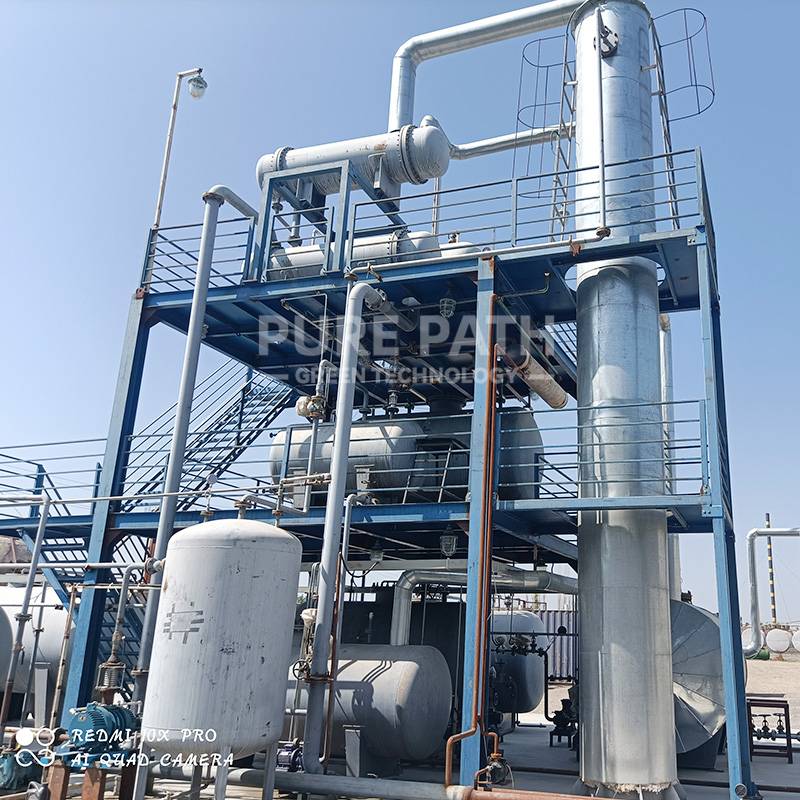
Environmental Impact of Used Motor Oil Recycling
1. Why is Recycling Used Motor Oil Crucial?
The responsible management and recycling of used motor oil assumes paramount importance within the broader context of environmental protection and ecological sustainability. Improper disposal of this hazardous waste presents a multitude of detrimental consequences, necessitating the implementation of robust recycling infrastructure and widespread adoption of responsible disposal practices.
1. Soil and Water Contamination
Used motor oil, if improperly disposed of, possesses the inherent threat of migrating into surrounding soil and infiltrating subsurface water resources. This contamination arises from:
- Hydrocarbon Leakage: The complex hydrocarbon composition of used oil enables its migration through soil layers, potentially reaching groundwater aquifers.
- Toxicant Leaching: Used oil contains various additives and contaminants, including heavy metals, that can leach into soil and subsequently dissolve into water sources, posing significant risks to aquatic life and human health.
- Persistent Environmental Impact: Due to its recalcitrant nature, used oil exhibits slow biodegradation, leading to long-term persistence in the environment and ongoing potential for contamination.
2. Ecological Disruption and Wildlife Harm
Contamination of soil and water resources by used oil unleashes cascading effects on ecosystems and wildlife:
- Habitat Degradation: Oil contamination disrupts soil health and impairs the growth of vegetation, impacting the ecological balance and reducing available habitat for diverse species.
- Aquatic Toxicity: Oil pollution in water bodies disrupts oxygen exchange, suffocates aquatic organisms, and bioaccumulates fish and other wildlife, posing threats to food webs and human health through the consumption of contaminated seafood.
- Biodiversity Loss: The aforementioned ecological disruptions ultimately contribute to biodiversity loss, jeopardizing the delicate balance of ecosystems and impacting the overall health of the environment.
3. Recycling as a Mitigation Strategy
Responsible used oil recycling offers a multifaceted solution to mitigate these environmental and ecological risks:
- Prevention of Contamination: By diverting used oil from improper disposal practices and channeling it into recycling facilities, the potential for soil and water contamination is significantly minimized.
- Resource Recovery: Recycling processes enable the re-refining of used oil into usable lubricants, promoting resource conservation and reducing reliance on virgin crude oil extraction.
- Energy Savings: Re-refined oil often requires less energy for processing compared to virgin oil, translating to reduced greenhouse gas emissions and a smaller environmental footprint.
By prioritizing responsible used oil recycling, we can safeguard our environment, protect its delicate ecosystems, and ensure a sustainable future for ourselves and generations to come.
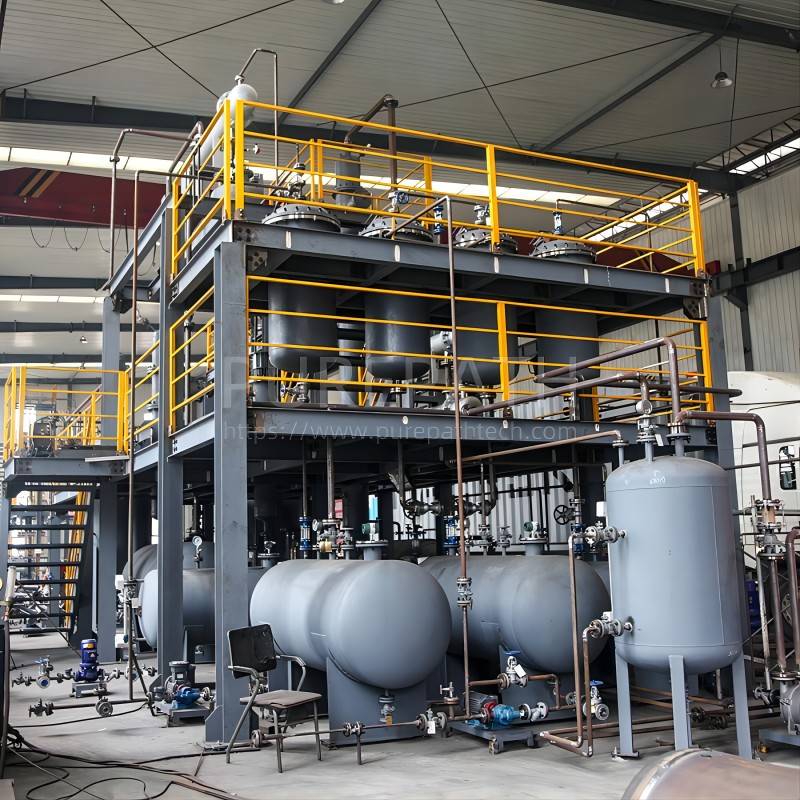
2. How Much Used Motor Oil is Recycled Each Year?
Within the United States, the current used motor oil recycling landscape presents a mixed picture, characterized by both positive strides and concerning gaps. While significant progress has been made in recovering and processing used oil, the persistence of improper disposal practices necessitates further efforts to elevate recycling rates and safeguard the environment.
1. Quantitative Analysis of Recycling:
- Recycled Volume: The used oil recycling landscape in the United States exhibits a positive trend, with approximately 380 million gallons processed annually. This signifies a commendable effort in diverting this hazardous waste from improper disposal and contributing to resource conservation.
- Improper Disposal: However, a concerning disparity remains, as an estimated 150 million gallons of used oil are still disposed of improperly each year. This highlights the critical need for continued awareness campaigns, improved infrastructure accessibility, and enhanced enforcement of regulations to bridge this gap.
2. Potential Environmental and Economic Consequences
- Environmental Impact: Improper disposal of used oil poses significant environmental threats, including soil and water contamination, disruption of ecosystems, and potential harm to wildlife. These consequences necessitate the responsible management of this hazardous waste stream to safeguard ecological health and public well-being.
- Economic Implications: Beyond the environmental concerns, improper disposal also entails economic costs associated with potential remediation efforts, lost resource recovery opportunities, and potential public health risks. Efficient and comprehensive used oil recycling programs offer economic benefits by promoting resource conservation, reducing reliance on virgin oil extraction, and minimizing the need for costly environmental cleanup initiatives.
3. Call to Action for Enhanced Recycling
- Individual Responsibility: Raising public awareness about the environmental and economic consequences of improperly used oil disposal and promoting responsible recycling practices among individuals and businesses is crucial. This can be achieved through educational campaigns, community outreach programs, and readily accessible recycling facilities.
- Policy and Infrastructure: Strengthening regulations and enforcement mechanisms to deter illegal dumping and incentivize proper disposal can contribute significantly to improved recycling rates. Additionally, investing in expanding and modernizing recycling infrastructure, particularly in underserved areas, can further facilitate responsible used oil management.
- Collaborative Efforts: Fostering collaboration among government agencies, industry stakeholders, environmental organizations, and community groups can create a comprehensive and effective approach to address the challenges associated with improperly used oil disposal. By working together, we can strive towards achieving universal participation in responsible used oil recycling and safeguarding our environment for future generations.
By understanding the current statistics, acknowledging the associated risks, and implementing effective strategies, we can collectively work towards a future where the responsible recycling of used oil becomes the norm, minimizing environmental impact and maximizing resource recovery for a more sustainable future.
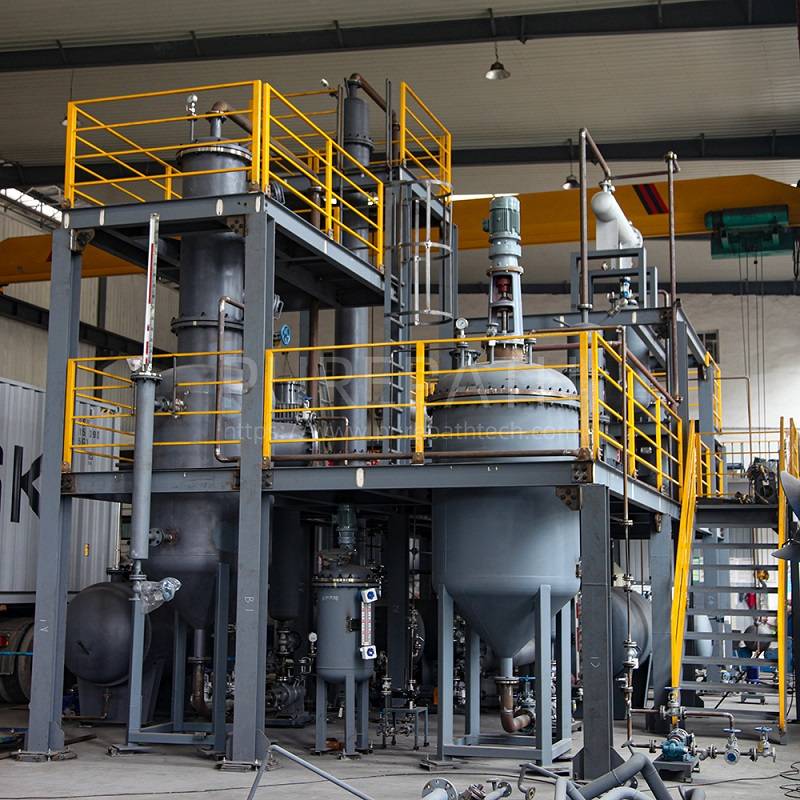
3. What are the Environmental Benefits of Recycling Used Motor Oil?
The responsible recycling of used motor oil offers a comprehensive array of environmental benefits, contributing to the protection of ecosystems, conservation of resources, and mitigation of climate change. By diverting used oil from improper disposal and channeling it into established recycling infrastructure, we can collectively achieve significant progress towards environmental sustainability.
1. Mitigating Soil and Water Contamination
- Prevention of Pollutant Migration: Improper disposal of used oil poses a significant threat to soil and water resources. Recycling diverts this hazardous waste from landfills and reduces the risk of:
- Hydrocarbon Infiltration: The complex hydrocarbon composition of used oil enables its migration through soil layers, potentially reaching and contaminating groundwater aquifers. Recycling eliminates this risk by capturing and processing the oil before it can enter the environment.
- Toxicant Leaching: Used oil contains various additives and contaminants, including heavy metals, that can leach into soil and subsequently dissolve into water sources. Recycling prevents this leaching and safeguards the quality of soil and water resources.
- Persistent Environmental Impact: Due to its slow biodegradation, improperly disposed oil persists in the environment for extended periods, posing a long-term threat. Recycling ensures proper treatment and eliminates this persistent contamination risk.
2. Promoting Resource Conservation and Circularity
- Reduced Reliance on Virgin Crude Oil: The re-refining process employed in used oil recycling yields usable lubricants, minimizing the need for extraction and refining of virgin crude oil. This translates to:
- Conservation of Fossil Fuels: By utilizing recycled oil, we conserve this finite resource, safeguarding its availability for future generations and reducing dependence on unsustainable extraction practices.
- Reduced Energy Consumption: Re-refining used oil generally requires less energy compared to virgin oil processing, leading to lower greenhouse gas emissions and a smaller environmental footprint.
- Embracing Circular Economy Principles: Recycling used oil exemplifies the principles of a circular economy, where resources are kept in use for extended periods, minimizing waste generation and promoting sustainability.
3. Minimizing Greenhouse Gas Emissions
- Life Cycle Analysis Perspective: When considering the entire life cycle of oil, from extraction to consumption and disposal, virgin oil production generates significant greenhouse gas emissions. Recycling offers a more environmentally friendly alternative by:
- Reducing Upstream Emissions: By utilizing recycled oil, we avoid the emissions associated with crude oil exploration, extraction, and transportation.
- Lower Processing Emissions: Re-refining used oil often requires less energy compared to virgin oil processing, further reducing greenhouse gas emissions associated with this stage.
- Offsetting Emissions: The overall reduction in emissions achieved through recycling contributes to mitigating climate change and its associated environmental consequences.
By understanding these multifaceted environmental benefits, we can appreciate the crucial role of used oil recycling in safeguarding our planet and fostering a more sustainable future. By actively participating in responsible recycling practices and advocating for wider program accessibility, we can collectively contribute to a cleaner environment and a more sustainable resource management system for generations to come.
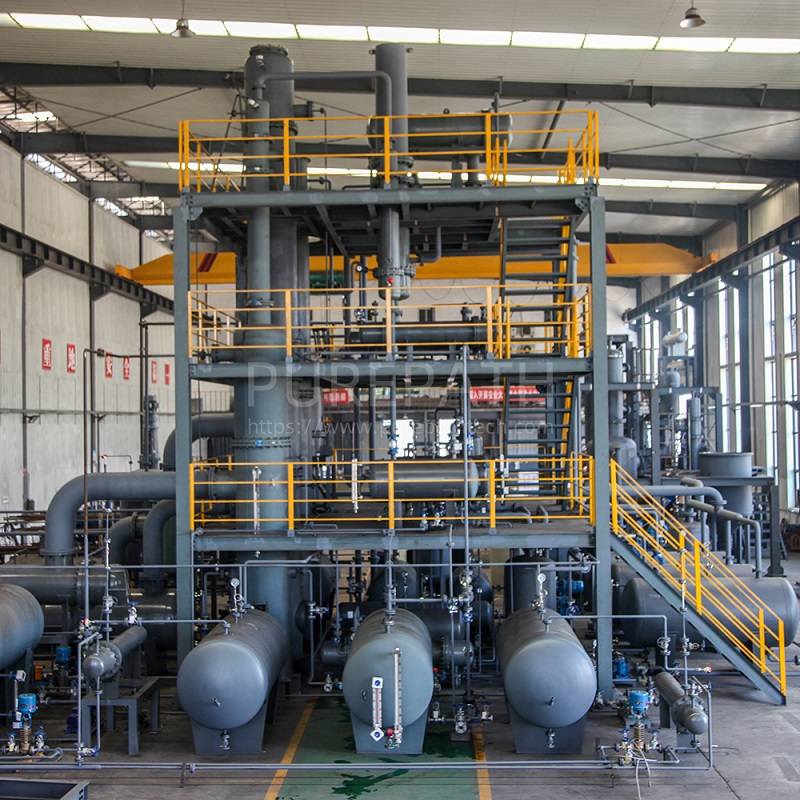
Recycling Process of Used Motor Oil Recycling
4. What Types of Oil Can be Recycled?
While most programs accept used motor oil and synthetic oil, the specific types of transmission fluids and other lubricants eligible for recycling can vary depending on local regulations and program capabilities. It’s crucial to consult your local program’s guidelines to determine which fluids they accept. Additionally, some programs might have restrictions on specific oil additives or contamination levels.
Used Motor Oil: This category encompasses conventional and synthetic lubricating oils specifically formulated for internal combustion engine lubrication in gasoline and diesel-powered vehicles. It is crucial to ensure the oil is free from significant contaminants such as coolant or gasoline, as their presence can hinder processing efficiency and compromise the quality of the recycled product.
Synthetic Oil: Despite its distinct chemical composition compared to conventional oil, synthetic oil is generally accepted by most recycling programs due to its shared base stock and comparable potential for refining. However, it’s always advisable to confirm program-specific guidelines to avoid any potential issues.
Transmission Fluids: The acceptance of automatic transmission fluids (ATFs) is less common due to potential incompatibility with engine oils during processing. This incompatibility can arise from the differing additive packages employed in each type of lubricant. While some programs might accept specific ATF types, thorough confirmation is essential to ensure proper disposal and avoid contamination risks.
Other Lubricants: The permissibility of various other lubricants, including gear oils, hydraulic fluids, and other specialty lubricants, displays significant program-to-program variation. Due to the diverse composition and potential additives found in these lubricants, it’s paramount to consult your local program’s specific guidelines and restrictions to determine their acceptance criteria and ensure responsible disposal.
By understanding the program-specific nuances regarding acceptable feedstock and adhering to their guidelines, you can contribute to an efficient and environmentally sound used oil recycling process, ultimately aiding in the conservation of resources and the protection of our planet.
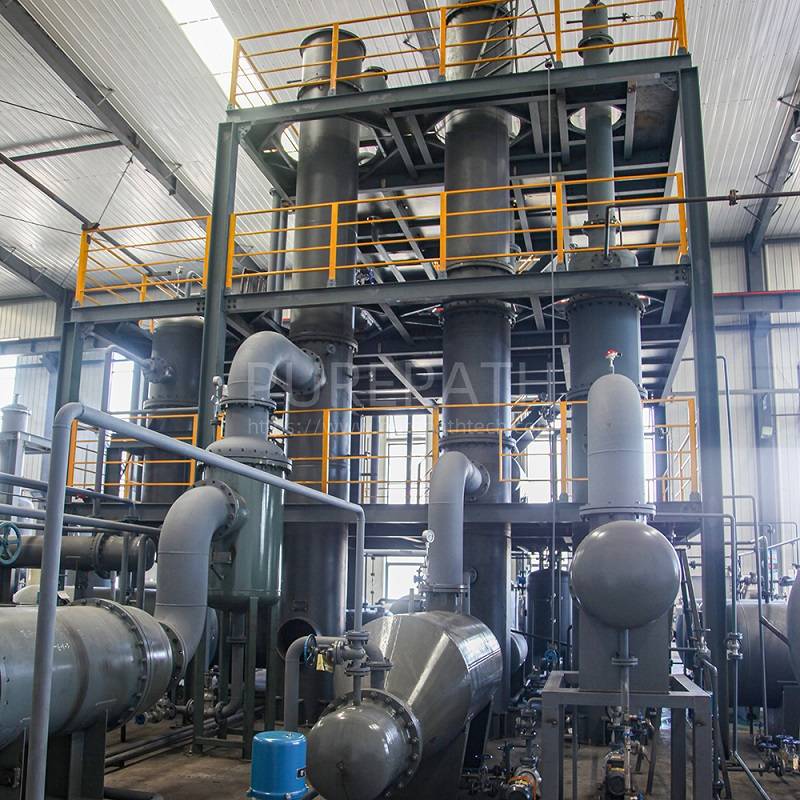
5. Where Can I Take My Used Motor Oil to Recycle?
A diversified array of readily accessible options exists for the responsible disposal of used motor oil, fostering environmental protection and resource conservation. These options cater to the specific needs and preferences of individuals and communities.
Auto Repair Shops and Quick Lube Centers: Many establishments offering oil change services readily accept used oil from customers, irrespective of whether the service was performed on-site or independently. This provides a convenient and widely available drop-off point, eliminating the need for individuals to accumulate used oil at home. It is crucial to inquire about any program-specific limitations or requirements regarding quantity or containerization before utilizing this option.
Household Hazardous Waste Facilities: These specialized facilities are designed to accept and manage a diverse range of household hazardous materials, including used oil. They offer a centralized collection point within communities, ensuring the proper handling and disposal of these materials to mitigate potential environmental harm. Residents are recommended to consult their local household hazardous waste facility for operating hours, accepted materials, and any quantity restrictions prior to their visit.
Municipal Collection Events: Many municipalities organize periodic collection events specifically dedicated to used oil and other hazardous materials. These events provide a convenient disposal option for residents who may not have regular access to HHWFs or prefer not to store used oil at home. Event details, including dates, locations, and accepted materials, should be obtained from the organizing municipality to ensure proper participation and responsible disposal.
Online Resources: A multitude of online resources offer comprehensive listings of authorized used oil collection points and recycling programs across various geographical regions. These tools empower individuals to locate the most convenient and compliant drop-off option based on their specific needs and proximity. Utilizing these resources helps ensure the proper management and responsible recycling of used oil, contributing to a more sustainable future.
By effectively utilizing these diverse options, individuals and communities can play a crucial role in responsibly managing used oil, and safeguarding the environment and its valuable resources.
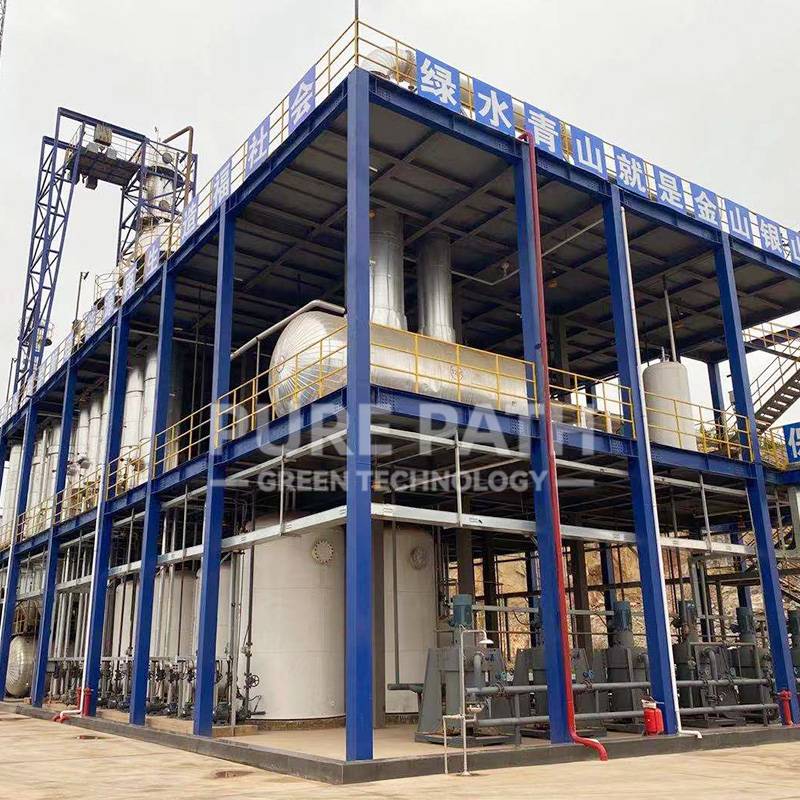
6. What Can I Do with My Used Oil Filter?
While many used oil recycling programs readily accept used oil filters alongside the collected oil, it’s crucial to adhere to program-specific handling procedures to ensure efficient processing and responsible disposal.
Draining Excess Oil: To minimize the amount of residual oil entering the recycling stream and enhance processing efficiency, allow the used oil filter to drain for a minimum of 24 hours before disposal. This drainage period permits the majority of the trapped oil to gravity-feed out of the filter media. Consider placing the filter upright within a container or utilizing a dedicated filter draining tool to facilitate this process.
Separate Containers: Program requirements for filter disposal can vary. Some programs mandate the placement of used oil filters in separate containers distinct from the collected oil. This segregation simplifies subsequent processing and allows for the proper handling of any residual contaminants within the filter media. Conversely, other programs might accept filters mixed directly with the used oil. It’s paramount to meticulously follow the specific instructions outlined by your chosen program to ensure compliance and facilitate efficient processing.
Metal Recycling Programs: Certain used oil recycling programs might not accept used oil filters due to their metal components, which can pose challenges during the processing stages. In such instances, explore alternative disposal options through local metal recycling programs. These programs typically accept used oil filters after they have been drained of excess oil and crushed to minimize their volume. Crushing the filters facilitates easier handling and transportation within the recycling infrastructure.
By understanding and implementing these program-specific procedures, you can ensure the responsible and sustainable disposal of your used oil filters, playing a crucial role in protecting the environment and its valuable resources.
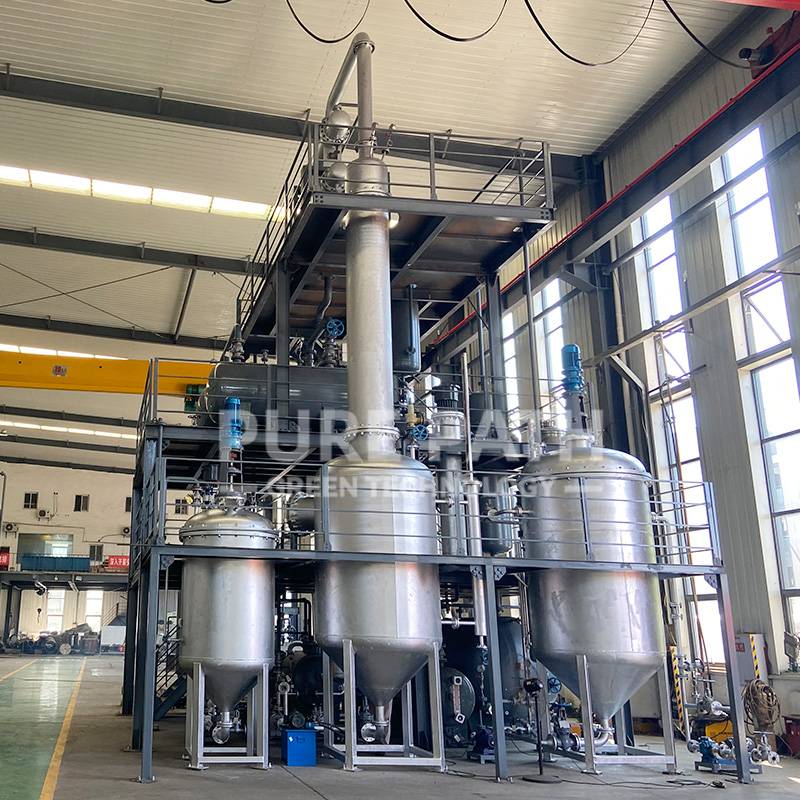
7. How is Used Motor Oil Recycled?
Used motor oil undergoes a meticulously designed, multi-stage process to be transformed into valuable re-refined products. This transformation involves several crucial steps, each playing a vital role in contaminant removal, fractionation, and property tailoring.
1. Pre-treatment
- Filtration: The initial stage involves meticulous filtration to remove large contaminants and particulate matter that could hinder subsequent processing and compromise product quality. This filtration typically utilizes depth filters or membrane separation technologies.
- Water Separation and Dehydration: Water content in used oil can significantly impact processing efficiency and product quality. Therefore, dedicated techniques like hydrocyclones or coalescers are employed to separate the oil and water phases. Subsequently, dehydration units utilizing vacuum distillation or adsorption technologies remove residual water molecules, ensuring a suitable feedstock for further processing.
2. Distillation
- The pre-treated oil undergoes vacuum distillation within a fractionator column. By carefully controlling temperature and pressure, the oil is separated into various hydrocarbon fractions based on their distinct boiling points. These fractions, characterized by specific boiling point ranges and chemical compositions, serve as the starting materials for subsequent refining stages.
3. Refining
Depending on the desired end product specifications, various refining techniques are employed to remove impurities, tailor the oil’s properties, and enhance its performance characteristics. Some commonly utilized techniques include:
- Hydrotreating: This process utilizes hydrogen and a catalyst to remove sulfur, nitrogen, and oxygen from the oil fractions, improving stability and reducing emissions.
- Solvent Extraction: Selective solvents can be employed to extract specific undesirable components like aromatics or heavy metals, further purifying the oil fractions.
- Clay Treatment: Adsorbent clays can be used to remove polar contaminants and improve the color and odor of the oil fractions.
4. Re-refined Oil Products
The culmination of the transformation process yields high-quality re-refined oil products with properties suitable for various applications. These products include:
- Lubricants: Re-refined oil can be used to produce high-grade lubricants for engines, transmissions, and industrial machinery, offering comparable performance to virgin-based lubricants.
- Asphalt Production: Certain fractions can be utilized as feedstock for asphalt production, contributing to sustainable infrastructure development.
- Heating Oil: Re-refined oil can be processed into heating oil, providing a viable alternative to fossil fuel-based heating sources.
- Other Industrial Products: Depending on the specific properties of the re-refined oil, it can find applications in various industrial products like greases, metalworking fluids, and process oils.
By understanding the intricacies of this multi-stage transformation process, we can appreciate the significant value proposition of used oil recycling. It not only diverts waste from landfills and protects the environment but also contributes to a more sustainable and circular economy by generating valuable resources from used materials.
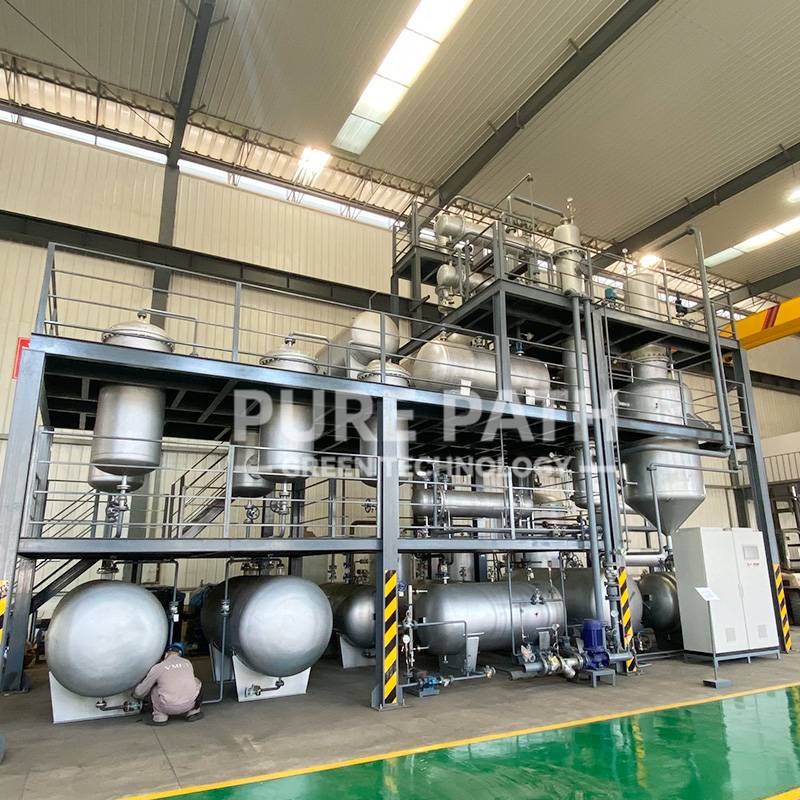
Enhanced Safety and Convenience in Used Motor Oil Recycling
8. How Do I Safely Store Used Oil at Home?
1. Utilizing Robust Containers
- Hazardous Material Design: Prioritize containers specifically designed to securely store hazardous materials. These containers typically exhibit superior durability, chemical resistance, and leakproof integrity compared to repurposed or generic options.
- Structural Integrity: Opt for containers free from cracks, dents, or any signs of structural compromise that could jeopardize their ability to retain the used oil safely. Flimsy or damaged containers pose significant leakage risks and should be avoided entirely.
- Dedicated Jugs or Repurposed Options: Consider utilizing commercially available used oil collection jugs specifically designed for this purpose. Alternatively, repurposed containers approved by the Department of Transportation (DOT) for hazardous material storage can be suitable options, provided they remain structurally sound and meet all regulatory requirements.
- Secure Lid Fastening: Ensure lids are securely fastened and employ mechanisms that prevent accidental opening or spillage. Tamper-evident seals or childproof caps can provide additional layers of security and minimize the risk of unauthorized access or unintentional exposure.
2. Implementing Clear and Unambiguous Labeling
- Prominent and Unambiguous: Adhere clear and easily identifiable labels to each container, utilizing high-contrast colors and large, legible fonts to ensure immediate recognition and readability.
- Standardized Content Identification: Consistently identify the contents as “Used Motor Oil” to avoid confusion and facilitate proper handling by collection personnel or disposal facilities.
- Date of Collection: Include the collection date on the label to enable efficient inventory management and ensure proper handling based on age and potential degradation of the used oil.
- Additional Information: Depending on program requirements or personal preference, consider incorporating additional information on the label, such as the type of oil (e.g., synthetic, conventional), the volume contained, or any specific handling instructions.
3. Prioritizing a Cool, Dry, and Well-Ventilated Storage Location
- Controlled Temperature and Humidity: Select a dedicated storage area characterized by cool and dry conditions. Avoid locations exposed to direct sunlight or excessive heat sources like furnaces or water heaters, as elevated temperatures can accelerate container degradation, promote evaporation, and potentially compromise the integrity of the stored oil.
- Adequate Ventilation: Ensure the storage location has sufficient ventilation to prevent the accumulation of harmful fumes or vapors associated with used oil. Opt for well-ventilated spaces with proper airflow or consider implementing additional ventilation measures if necessary.
- Accessibility Restrictions: Prioritize locations out of reach of children and pets to prevent accidental ingestion or exposure. Utilize secure cabinets, locked storage areas, or elevated shelving to create physical barriers and minimize potential risks.
By implementing these measures, you can ensure the safe, secure, and responsible storage of used oil at home, safeguarding your family, pets, and the surrounding environment. Remember, proper storage practices not only promote safety but also contribute to the efficient and compliant disposal of used oil through authorized recycling programs.
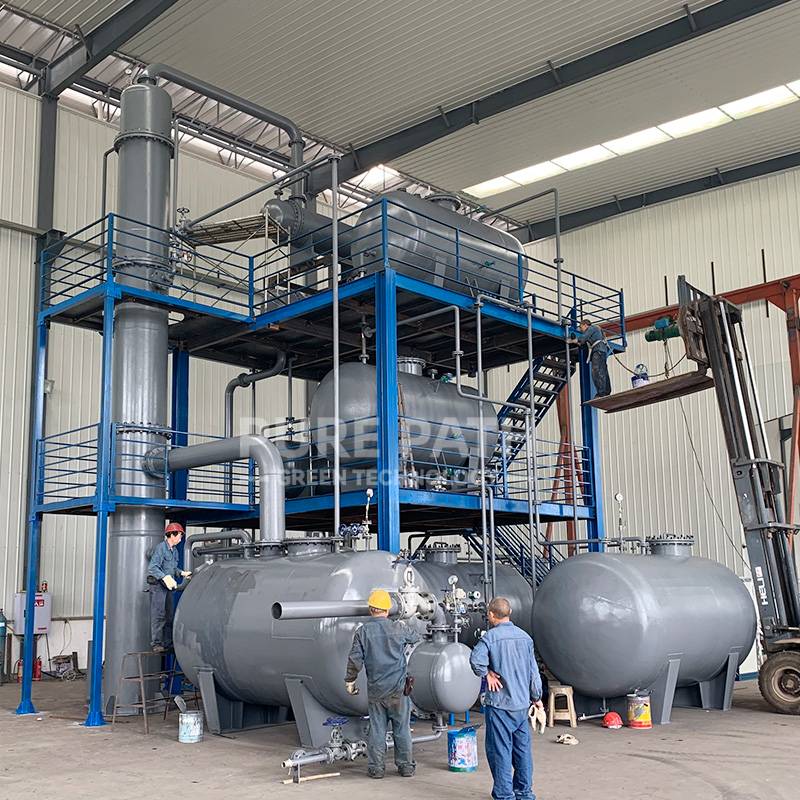
9. Can I Mix Different Types of Used Oil Together?
The practice of mixing different types of used oil presents potential challenges and necessitates careful consideration due to compatibility concerns that can impact both the recycling process and the quality of the re-refined oil.
1. Potential for Incompatible Components
Used oil encompasses a diverse spectrum of lubricant types, each formulated with distinct additive packages tailored for specific applications (e.g., engine oil, transmission fluid, hydraulic fluid). These additives can exhibit varying degrees of compatibility when mixed, potentially leading to:
- Precipitation: Incompatible additives can react and form precipitates, solids that can clog filters and hinder processing efficiency within the recycling facility.
- Performance Degradation: Mixing incompatible oils can compromise the performance characteristics of the re-refined oil, potentially impacting its viscosity, oxidation stability, and anti-wear properties.
- Contamination Concerns: Certain additives might introduce contaminants into the mixed oil stream, jeopardizing the quality of the re-refined product and necessitating additional processing steps.
2. Program-Specific Acceptance Criteria
While some recycling programs might accept mixed used oil, it’s crucial to acknowledge that others have established restrictions or specific guidelines for accepted feedstock due to compatibility concerns. These varying acceptance criteria arise from:
- Processing Capabilities: Different recycling facilities possess diverse capabilities and employ distinct technologies to handle and process used oil. Some facilities might be equipped to manage mixed oil effectively, while others might lack the necessary infrastructure or expertise.
- Regulatory Requirements: Local regulations and environmental standards can influence program acceptance criteria for mixed oil, as certain jurisdictions might impose stricter limitations to safeguard environmental quality and public health.
- Economic Considerations: Processing mixed oil can be more complex and resource-intensive compared to segregated feedstock. Some programs might choose to avoid mixed oil altogether based on economic considerations and the potential for reduced efficiency or product quality.
3. Importance of Program Verification
Given the potential challenges associated with mixing different used oil types, it’s paramount to always consult your chosen recycling program for their specific guidelines and acceptance criteria regarding mixed oil. This proactive approach ensures:
- Compliance: Adherence to program-specific guidelines safeguards against potential issues with incompatibility or non-compliance, preventing rejection of your used oil and ensuring responsible disposal.
- Efficient Processing: By following program instructions, you contribute to a streamlined and efficient processing experience, minimizing delays and maximizing resource recovery.
- Environmental Protection: Responsible segregation of used oil types minimizes the risk of contamination and facilitates the production of high-quality re-refined oil, ultimately benefiting the environment.
By understanding the potential challenges and program-specific considerations associated with mixing different used oil types, you can make informed decisions and contribute to a more responsible and sustainable used oil recycling process. Remember, taking the time to verify program guidelines and segregate your used oil whenever possible plays a crucial role in protecting the environment and ensuring the efficient recovery of valuable resources.
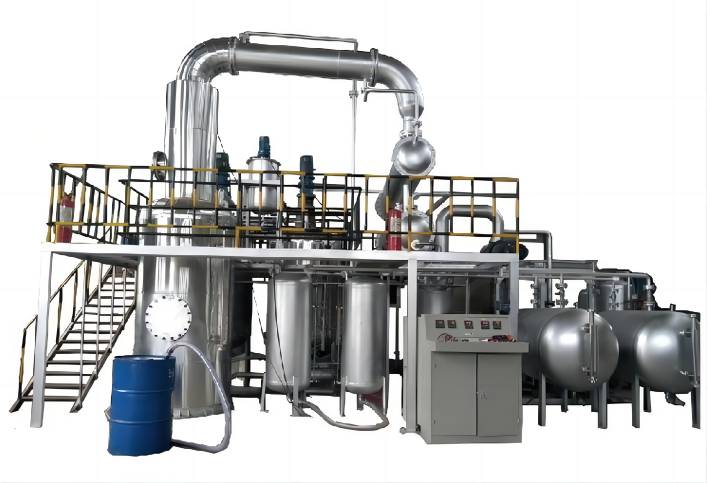
10. How Much Used Oil Can I Recycle at Once?
The permissible quantity of used engine oil accepted for recycling at a single instance varies across programs but typically adheres to established limitations to ensure efficient processing and responsible management.
1. Program-Specific Quotas
Most used oil recycling programs implement designated quantitative restrictions per individual, often ranging from 5 to 10 gallons per day. These limitations serve several critical purposes:
- Processing Capacity Management: Established quotas prevent excessive accumulation of used oil at collection points, ensuring facilities maintain adequate processing capacity and avoid operational bottlenecks.
- Resource Allocation Optimization: Limiting individual contributions allows programs to effectively allocate resources and personnel for efficient handling and processing of the collected oil.
- Environmental Safeguards: Smaller quantities minimize the risk of spills or leaks during transportation and storage, mitigating potential environmental hazards associated with used oil.
2. Importance of Program Verification
Due to the potential for varying limitations across programs, it’s imperative to consult your chosen program directly to ascertain their specific quantitative restrictions for used oil recycling. This proactive approach offers several benefits:
- Compliance Assurance: Verifying program-specific limits safeguards against exceeding their established quotas, preventing potential inconvenience from rejected materials, and ensuring responsible disposal practices.
- Efficient Drop-off: Knowing the acceptable quantity beforehand facilitates a smooth and efficient drop-off experience, minimizing wait times and potential disruptions at the collection facility.
- Alternative Disposal Planning: If the required quantity surpasses the program’s limit, you can explore alternative disposal options, such as participating in community collection events or seeking authorized hazardous waste disposal facilities equipped to handle larger volumes.
3. Additional Considerations
- Frequency of Disposal: While programs establish daily limitations, the overall frequency of disposal should be guided by responsible generation practices. Avoid accumulating excessive amounts of used oil at home, and adhere to program-specific guidelines for safe and timely disposal.
- Containerization: Ensure your used oil is stored and transported in appropriate, leak-proof containers that comply with program requirements and industry standards. This safeguards against spills or leaks during transportation and protects the environment.
- Labeling: Clearly label your used oil containers with the contents (“Used Motor Oil”) and the date of collection. This enhances transparency and facilitates proper handling throughout the recycling process.
By understanding the rationale behind established quantity limitations and verifying program-specific guidelines, you can contribute to a responsible and efficient used oil recycling process. Remember, responsible disposal goes beyond mere convenience; it plays a crucial role in protecting our environment and conserving valuable resources for future generations.
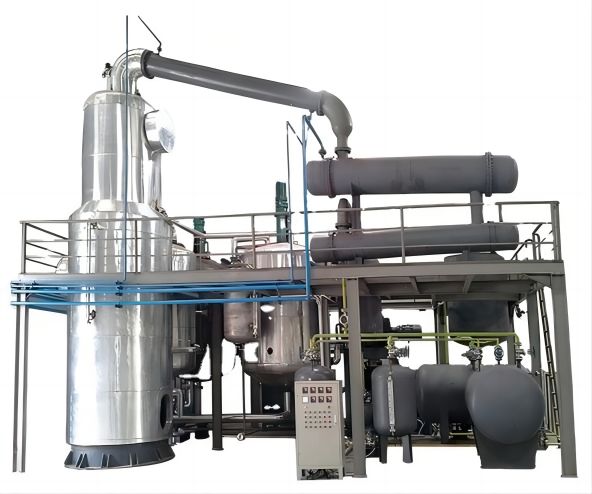
11. Are There Any Fees Associated with Recycling Used Motor Oil?
The presence or absence of associated fees for used motor oil recycling varies across programs due to diverse operational models, local regulations, and funding mechanisms. Understanding these factors can contribute to informed decision-making regarding responsible used oil disposal.
1. Program-Specific Fee Policies
- Fee-Based Programs: Certain programs implement nominal fees to offset the costs associated with the collection, transportation, and processing of used oil. These fees can cover expenses related to:
- Facility Operation: Maintaining and operating collection points, processing facilities, and associated equipment.
- Personnel Costs: Staffing for collection, transportation, and processing activities.
- Administrative Expenses: Program management, outreach, and compliance activities.
- Re-refining Costs: Depending on the program’s scope, fees might contribute to the costs associated with re-refining used oil into usable products.
- Free-of-Charge Programs: Some programs offer free used oil recycling services, often funded through:
- Government Grants: Public funding initiatives aimed at promoting environmental sustainability and responsible waste management.
- Industry Funding: Partnerships with oil and lubricant manufacturers who contribute to support recycling infrastructure and offset processing costs.
- Volunteer Efforts: Programs relying on volunteers to support collection and processing activities might not require user fees.
2. Transparency and Program Verification
Regardless of their fee structure, transparency is crucial. It’s vital to directly contact your chosen program to ascertain their specific fee policy and associated costs. This proactive approach offers several advantages:
- Budget Planning: Understanding any associated fees allows for informed budgeting and avoids potential surprises upon drop-off.
- Program Comparison: Fee structures can differ across programs. Comparing costs might influence your disposal decision based on budget constraints or personal preferences.
- Value Recognition: Even for fee-based programs, recognizing the associated costs helps appreciate the value proposition of responsible used oil recycling compared to improper disposal methods.
3. Additional Considerations
- Fee Justification: When applicable, inquire about program details regarding how collected fees are utilized to ensure transparency and responsible resource allocation.
- Alternative Options: Explore the availability of free used oil recycling programs in your area. Certain municipalities, automotive service providers, and environmental organizations might offer cost-free collection points, fostering wider participation and responsible disposal practices.
- Responsible Disposal: Regardless of fee structures, responsible used oil disposal is paramount. Avoid illegal dumping or improper disposal methods that can harm the environment and potentially incur significant fines.
By comprehending the diverse fee structures, engaging in program verification, and considering alternative options, you can make informed decisions and contribute to a responsible and sustainable used oil recycling process.
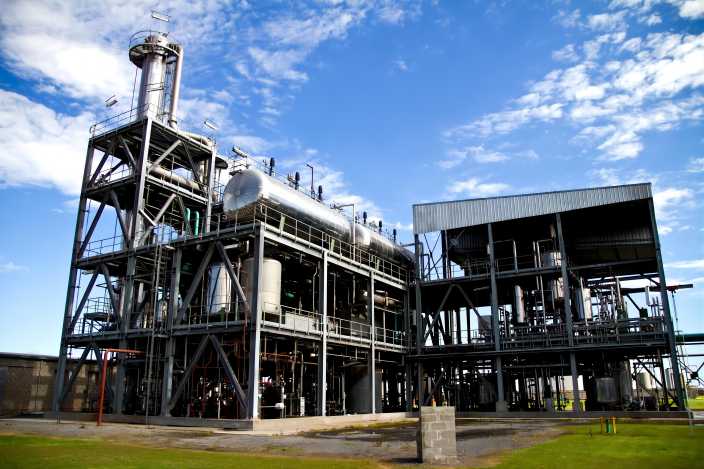
Alternatives and Additional Information for Used Motor Oil Recycling
12. What If I Can’t Find a Place to Recycle My Used Oil?
While readily accessible used oil recycling programs are ideal, situations might arise where locating such a facility proves challenging. In such instances, several responsible alternative disposal options exist to prevent improper disposal and safeguard the environment.
1. Participating in Oil Change Services
- Many automotive service providers, particularly those specializing in oil changes, offer used oil recycling services alongside their core business operations. These establishments typically possess the necessary infrastructure and permits to responsibly collect and manage used oil, often in partnership with authorized recycling facilities.
2. Municipal Inquiries
Local municipalities often play a crucial role in waste management and environmental protection. Contacting your local municipality’s environmental department or sanitation authority can provide valuable insights into alternative disposal options. They might offer:
- Community Collection Events: Periodically organized collection events specifically dedicated to hazardous materials, including used oil, can provide convenient disposal opportunities.
- Drop-off Facilities: Certain municipalities might operate designated drop-off facilities for hazardous waste, including used oil. These facilities typically require adherence to specific guidelines regarding containerization, quantity limits, and accepted materials.
Partnerships with Recycling Programs: Municipalities often collaborate with licensed recycling facilities to provide residents with access to responsible used oil disposal options.
3. Crucial Reminders
- Never Dispose of Used Oil Improperly: Under no circumstances should used oil be poured down drains, onto the ground, or into any waterways. These actions constitute illegal dumping and pose significant environmental hazards due to their potential to contaminate soil and water resources.
- Always Adhere to Program Guidelines: Regardless of the chosen disposal method, it’s imperative to follow all program-specific instructions and regulations. This ensures responsible handling, efficient processing, and compliance with environmental regulations.
- Seek Clarification: If uncertainties arise regarding alternative disposal options or program requirements, don’t hesitate to seek clarification from the program operator or your local municipality’s environmental department. Their expertise can guide you towards the most responsible and compliant disposal method.
By exploring these alternative options and adhering to responsible disposal practices, you can contribute to a sustainable and environmentally conscious approach to managing used oil, even in the absence of dedicated recycling programs.
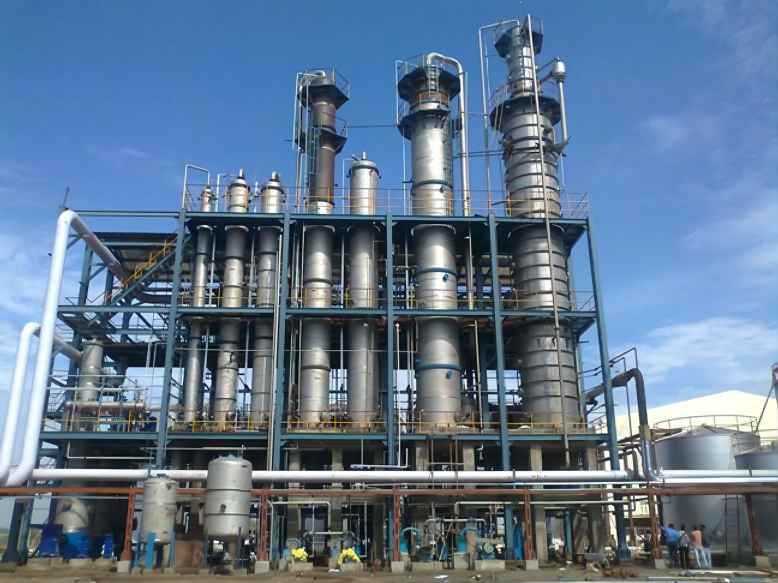
13. What Are Some Other Ways to Reduce My Impact on the Environment When Changing My Oil?
Beyond utilizing established used engine oil recycling programs, several proactive measures can be implemented to further reduce the environmental footprint associated with oil changes. These practices contribute to resource conservation, pollution mitigation, and a more sustainable approach to vehicle maintenance.
1. Implementing Reusable Oil Filters
- Technological Advancements: Consider utilizing reusable oil filters manufactured with advanced filtration media and robust construction. These filters are designed to withstand multiple cleaning cycles while maintaining filtration efficiency, potentially equaling the performance of disposable filters over their lifespan.
- Cleaning and Maintenance: Adhere to manufacturer-recommended cleaning procedures for reusable filters, employing environmentally friendly cleaning solvents and ensuring proper disposal of spent cleaning solutions through authorized channels.
- Environmental Benefits: Choosing reusable filters reduces waste generation associated with disposable filters, minimizes the environmental impact of manufacturing and transportation, and conserves resources.
2. Selecting Environmentally Friendly Lubricants
- Biodegradable Options: Explore the availability of biodegradable lubricants formulated from renewable resources like vegetable oils or synthetic esters. These lubricants offer comparable performance to conventional oils while exhibiting faster biodegradation in the environment, minimizing potential soil and water contamination risks.
- Performance Verification: Ensure chosen biodegradable lubricants meet the viscosity and performance specifications recommended by your vehicle manufacturer to safeguard engine health and optimal operation.
- Responsible Sourcing: Look for lubricants produced using sustainable practices and responsible sourcing of raw materials to minimize the overall environmental footprint of the product.
3. Proper Disposal of Oil Change Waste
- Oil Change Rags: Utilize absorbent materials specifically designed for oil and hazardous waste cleanup. Avoid using conventional rags or towels, as they can become saturated and pose disposal challenges.
- Waste Segregation: Clearly segregate oil-contaminated rags and other hazardous waste generated during the oil change process from general household waste. This facilitates proper disposal through authorized channels to prevent improper landfilling or incineration.
- Authorized Disposal Facilities: Seek authorized hazardous waste disposal facilities or dedicated used oil collection points to ensure responsible and compliant disposal of oil change waste, minimizing environmental risks and promoting resource recovery.
4. Additional Considerations
- Energy-Efficient Practices: Minimize idling time during the oil change process to conserve fuel and reduce air pollution emissions.
- DIY vs. Professional Service: Evaluate the environmental impact of performing your own oil change compared to utilizing professional services, considering factors like resource consumption, waste generation, and potential for spills.
- Extended Drain Intervals: If your vehicle and driving conditions permit, adhere to manufacturer-recommended extended drain intervals for engine oil, reducing the frequency of oil changes and their associated environmental impact.
By adopting these practices and embracing a mindful approach to oil changes, you can significantly reduce your environmental footprint, contribute to a more sustainable future, and demonstrate responsible stewardship of our planet’s resources.
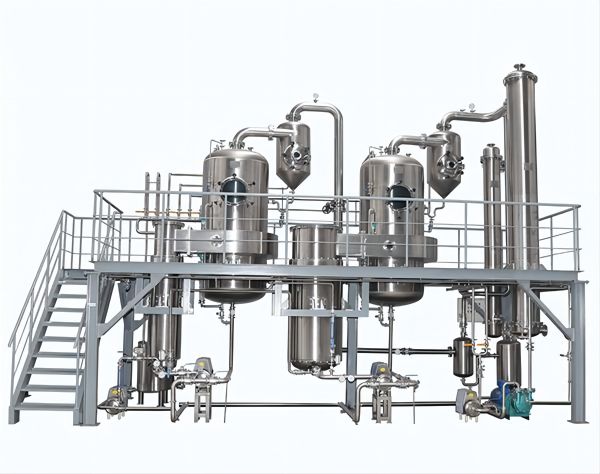
14. Where Can I Learn More About Used Motor Oil Recycling?
Understanding the intricacies and importance of used engine oil recycling empowers individuals to make informed decisions and contribute to a more sustainable future. Fortunately, a wealth of resources exists to delve deeper into this crucial environmental topic. Here, we explore various avenues for enriching your knowledge:
1. Engaging Your Local Municipality
Environmental Departments: Municipalities often spearhead waste management initiatives and environmental protection efforts. Contacting your local environmental department can provide valuable insights into:
- Local Used Oil Recycling Programs: Gain firsthand information about established programs in your area, including their locations, acceptance criteria, and operational details.
- Community Collection Events: Participate in periodic collection events specifically dedicated to hazardous materials, including used oil, offered by your municipality. These events provide convenient disposal opportunities and promote responsible waste management practices.
- Educational Resources: Local environmental departments often develop educational materials and awareness campaigns to educate residents about responsible waste disposal, including used oil recycling guidelines.
2. Leveraging Industry Associations and Environmental Organizations
1) American Petroleum Institute (API): This industry association representing the oil and gas sector offers comprehensive resources on used oil recycling, including:
- Used Oil Recycling Information Center: A dedicated website providing detailed information on the benefits of recycling, program locator tools, and educational materials for various audiences.
- Public Service Announcements (PSAs): Engaging and informative PSAs raising awareness about responsible used oil disposal and promoting participation in recycling programs.
- Research and Advocacy: API actively supports research initiatives and advocates for policies that promote responsible used oil management and encourage the development of robust recycling infrastructure.
2) U.S. Environmental Protection Agency (EPA): The EPA serves as a trusted source for environmental regulations and educational materials on various topics, including used oil recycling. Key resources include:
- Managing Used Oil: A comprehensive webpage outlining the environmental risks of improper disposal, highlighting the importance of recycling, and providing information on program locator tools.
- Regulations and Guidance: Access EPA regulations and guidance documents pertaining to the proper management and disposal of used oil, ensuring compliance with environmental standards.
- Partnerships and Initiatives: The EPA collaborates with various stakeholders, including industry and local communities, to promote responsible used oil management and advance recycling efforts.
3. Exploring Additional Resources
- National Waste & Recycling Association (NWRA): This association representing the waste and recycling industry provides information on various waste streams, including used oil, and promotes sustainable waste management practices.
- Keep America Beautiful: This leading national nonprofit organization dedicated to community beautification and waste reduction offers educational materials and resources on responsible waste disposal, including used oil recycling.
- Earth Day Network: This global organization spearheading environmental activism provides resources and encourages participation in Earth Day events, often promoting responsible waste management and recycling initiatives.
By actively engaging with these resources and organizations, you can gain a comprehensive understanding of used oil recycling, its significance for environmental protection, and the various ways you can contribute to a more sustainable future.
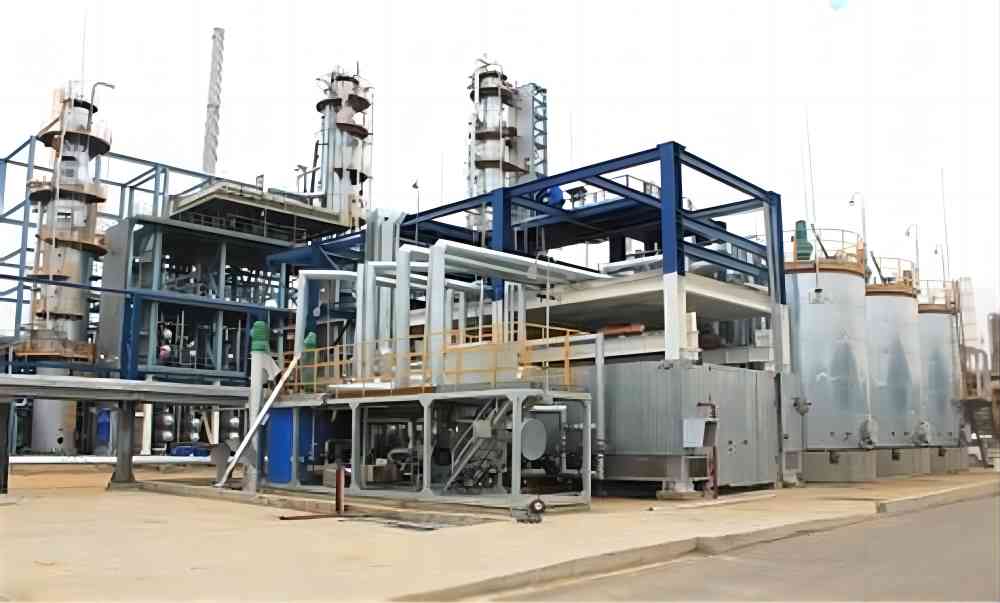
15. How Can I Encourage Others to Recycle Their Used Oil?
Encouraging others to embrace used oil recycling necessitates a multifaceted approach that combines effective communication, personal action, and community engagement. Here, we delve into strategies for fostering a culture of responsible used oil disposal:
1. Disseminating Knowledge and Raising Awareness
- Informative Sharing: Share readily available resources, such as websites and brochures from credible organizations like the American Petroleum Institute (API), the U.S. Environmental Protection Agency (EPA), or local municipalities, with your network. These materials often provide comprehensive information on:
- Environmental Impact of Improper Disposal: Highlight the detrimental effects of improper used oil disposal on soil, water resources, and public health.
- Benefits of Recycling: Emphasize the environmental advantages of recycling, including resource conservation, reduced pollution, and the potential for re-refining used oil into usable products.
- Local Program Accessibility: Share details about readily available used oil recycling programs in your area, including their locations, operating hours, and acceptance criteria.
- Tailored Communication: Consider the specific interests and needs of your audience when sharing information. Craft messages that resonate with individuals’ values and provide practical guidance on incorporating recycling into their routines.
- Utilizing Social Media: Leverage social media platforms to share informative content, engage in discussions about responsible waste management, and promote local recycling initiatives.
2. Leading by Example and Inspiring Action
- Personal Commitment: Demonstrate your commitment to responsible used oil disposal by diligently participating in established recycling programs. This personal action serves as a powerful motivator for others to follow suit.
- Sharing Your Experience: Document your positive experiences with used oil recycling, highlighting its convenience and ease of participation. Share these experiences through personal conversations, online platforms, or community newsletters.
- Engaging in Community Initiatives: Volunteer your time or support organizations that promote responsible waste management and used oil recycling efforts in your community. This active participation demonstrates your commitment and inspires others to contribute.
3. Building Momentum and Fostering Collaboration
- Community Outreach: Initiate conversations with local environmental groups, community centers, or homeowner associations to organize awareness campaigns or educational workshops on responsible used oil disposal.
- School Engagement: Collaborate with schools to incorporate used oil recycling education into their curriculum, fostering environmental awareness and responsible habits in younger generations.
- Policy Advocacy: Advocate for policies that promote and incentivize responsible used oil management practices at local and state levels. This can include supporting measures that expand access to recycling programs and increase public awareness.
By adopting these strategies and actively engaging in knowledge sharing, personal action, and community collaboration, you can become a catalyst for positive change and contribute to a more sustainable future where responsible used oil recycling becomes the norm.
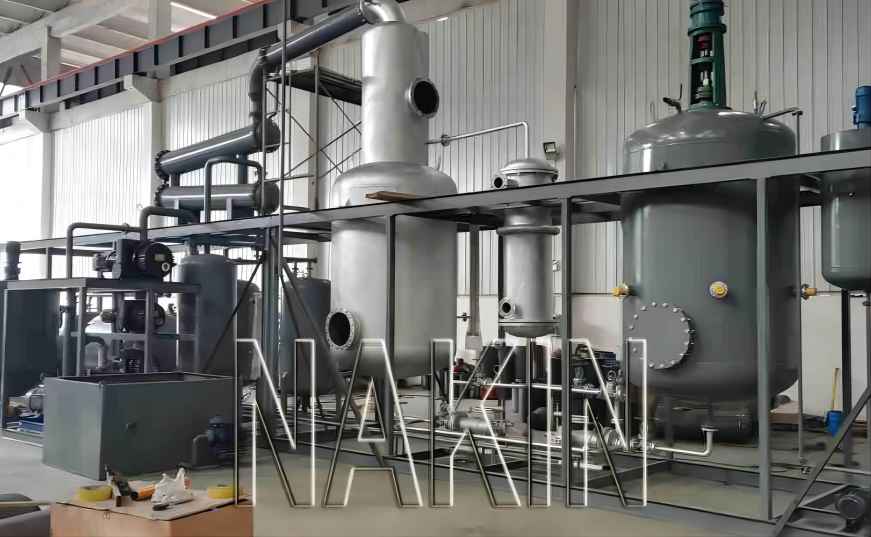
Conclusion
Used motor oil, while essential for vehicle operation, presents a potential environmental hazard if disposed of improperly. Fortunately, understanding the process of used oil recycling empowers individuals to make informed decisions and contribute to a more sustainable future. This article has addressed your top 15 questions, unveiling the intricacies of used oil recycling, its environmental benefits, and the readily available resources and programs at your disposal.
Remember, responsible used engine oil recycling transcends mere convenience; it’s an act of environmental stewardship. By diligently participating in established programs, advocating for wider accessibility, and inspiring others to follow suit, we can collectively minimize our environmental footprint and conserve valuable resources for generations to come. Let this newfound knowledge serve as a springboard for action. Together, we can cultivate a culture of responsible used oil recycling, ensuring a cleaner planet and a brighter future for all.







